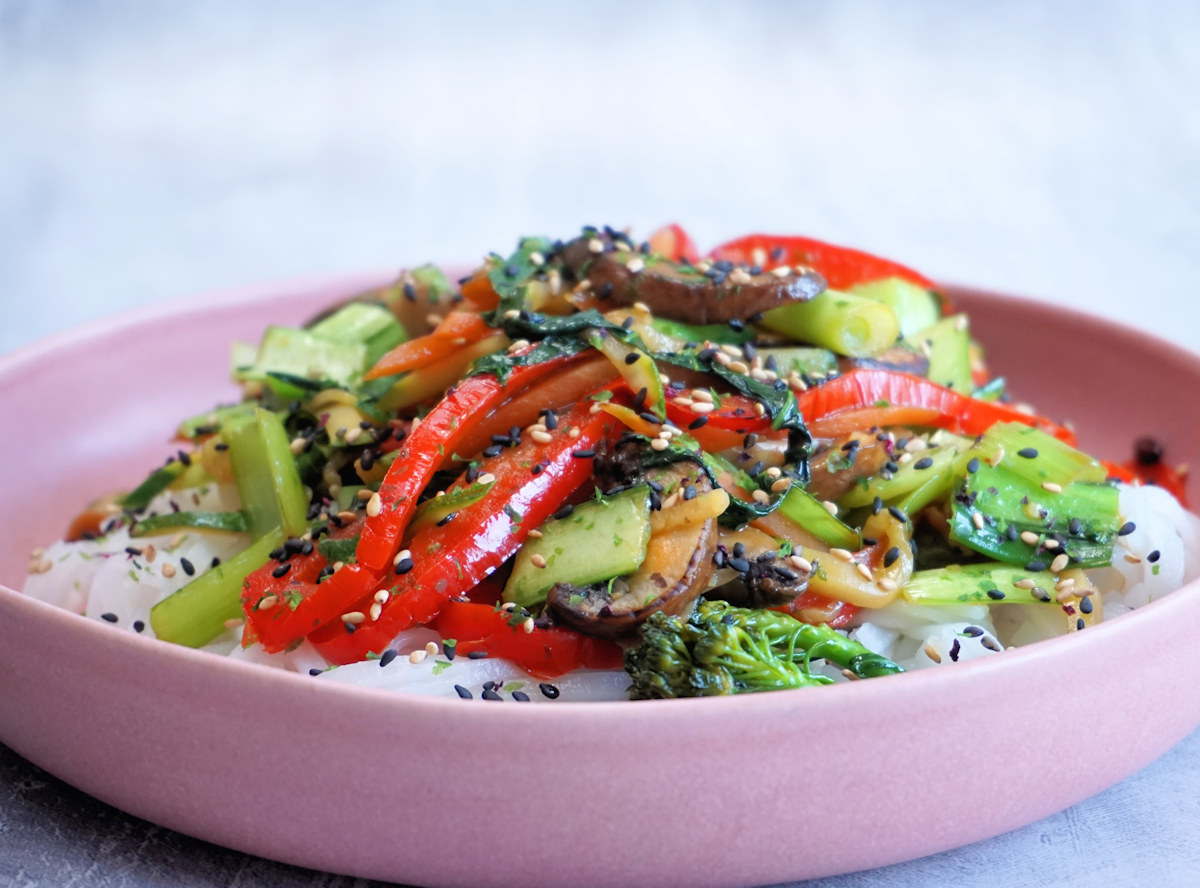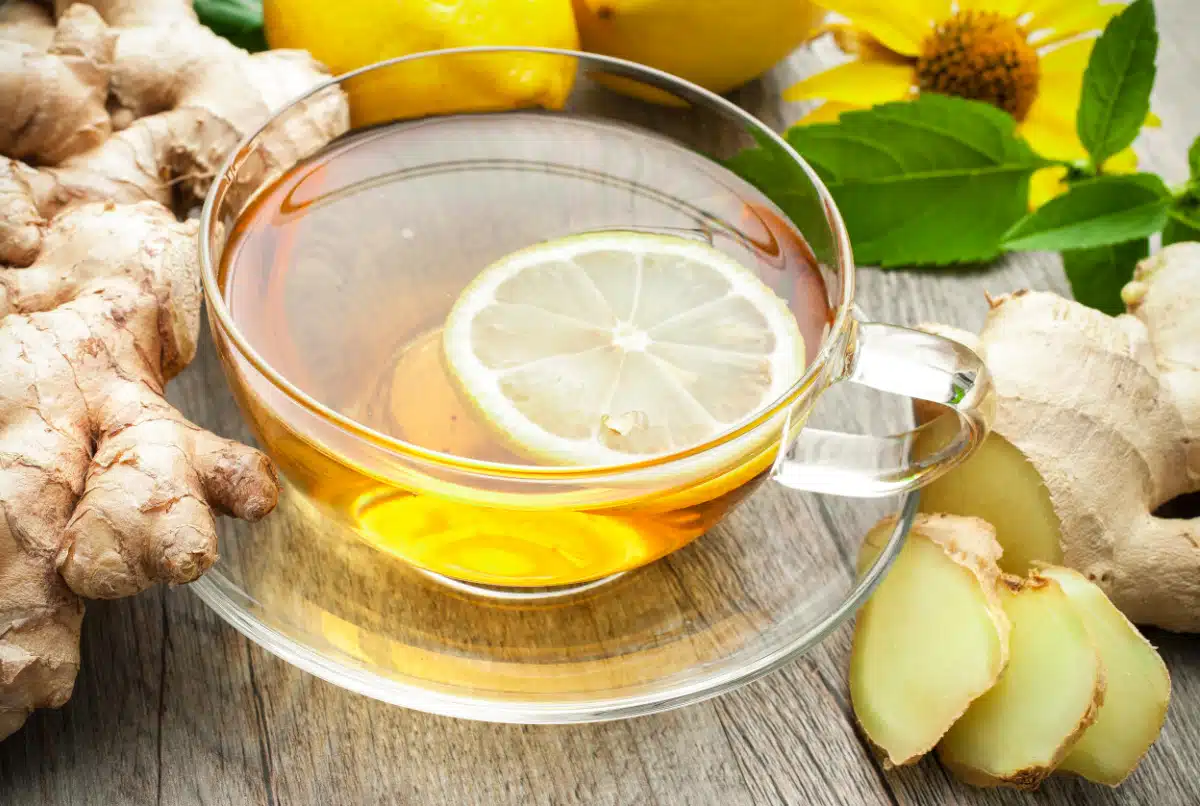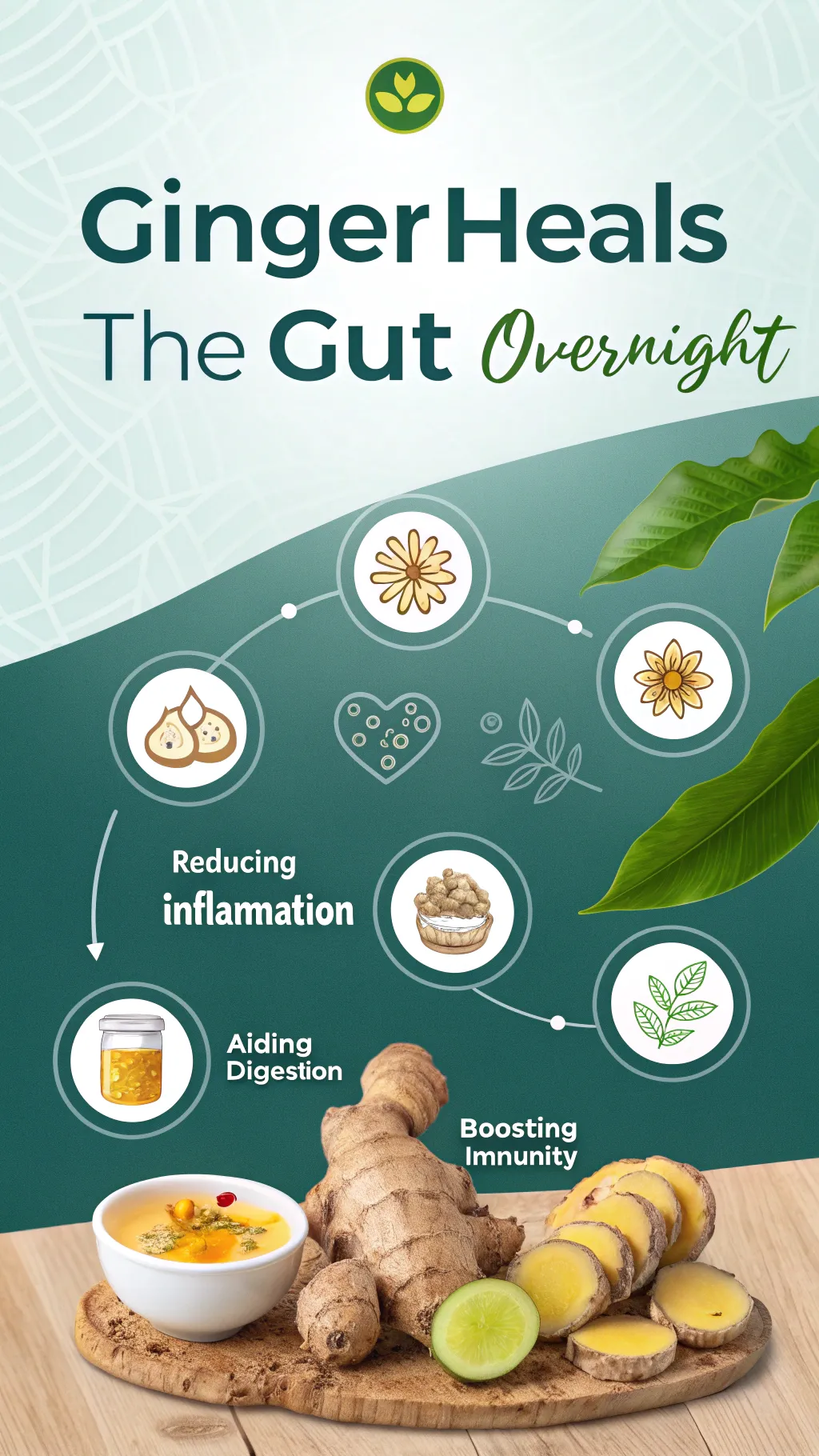7 Surprising Ways Ginger Heals Your Gut Overnight
Ginger is more than just a spicy kick in your stir-fry or a cozy ingredient in your tea. This humble root has been a staple in traditional medicine for centuries, and modern science is catching up to its incredible benefits, especially for your gut. From soothing digestion to fighting inflammation, ginger works wonders while you sleep. Let’s dive into the seven surprising ways ginger can heal your gut overnight, backed by science and practical tips to make it part of your routine.
What is Ginger Good For?
Ginger, scientifically known as Zingiber officinale, is a powerhouse of bioactive compounds like gingerol and shogaol. These give ginger its anti-inflammatory, antioxidant, and antimicrobial properties. For your gut, ginger acts like a gentle healer, calming irritation, boosting digestion, and even supporting your immune system. Whether you’re dealing with bloating, nausea, or just want a healthier digestive system, ginger is a natural go-to.
Ginger’s versatility makes it a star in both food and nutrition supplements. From fresh ginger in smoothies to ginger powder in capsules, it’s easy to incorporate into your diet. But what makes it so special for your gut? Let’s explore the health benefits of ginger and how it works its magic overnight.
Health Benefits of Ginger
Ginger’s benefits for gut health are wide-ranging. Here are seven surprising ways it can transform your digestive system while you rest:
1. Better Digestion
Ginger is a digestion superhero. It stimulates the production of digestive enzymes, which help break down food more efficiently. This means less bloating and discomfort after meals. Studies, like those published in the Journal of Food and Nutrition, show that ginger can speed up gastric emptying, helping food move through your stomach faster. Overnight, this process continues, reducing the chances of waking up with that heavy, sluggish feeling.

Digestion-Friendly Meals with Ginger
Adding ginger to your diet is simple and delicious. Try these gut-friendly recipes:
- Super Green Ginger Smoothie: Blend fresh ginger with spinach, banana, and almond milk for a nutrient-packed start to your day. The ginger adds a zesty kick while soothing your stomach.
- Easy Ginger Tea with Lemon: Steep sliced fresh ginger and a squeeze of lemon in hot water for a calming evening drink. This combo not only aids digestion but also hydrates you overnight.
2. Boosts Immunity
Your gut is home to about 70% of your immune system. Ginger’s antimicrobial properties help fight off harmful bacteria in your digestive tract, keeping your gut microbiome balanced. A healthy gut microbiome means a stronger immune system, which works hard while you sleep to protect you from illness. Ginger’s antioxidants also reduce oxidative stress, giving your immune cells a boost.

3. Alleviates PMS Symptoms
For women, ginger can be a game-changer during menstruation. Its anti-inflammatory properties help reduce cramping and bloating, common culprits of gut discomfort during PMS. A study in the Journal of Alternative and Complementary Medicine found that ginger can significantly reduce menstrual pain. Sipping ginger tea before bed can ease these symptoms overnight, leaving you feeling lighter by morning.
4. Relieves Nausea and Upset Stomach
Ginger is famous for calming nausea and upset stomachs. Whether it’s motion sickness, morning sickness, or post-dinner queasiness, ginger’s compounds relax the stomach muscles and reduce irritation. Drinking ginger tea or chewing on a small piece of fresh ginger before bed can settle your stomach, allowing your body to focus on healing while you sleep.

5. May Help With Cancer
Emerging research suggests ginger may have anti-cancer properties, particularly for digestive cancers like colorectal cancer. Its anti-inflammatory compounds may inhibit the growth of cancer cells, according to studies in the Journal of Cancer Prevention. While more research is needed, adding ginger to your diet could support long-term gut health and reduce inflammation that might contribute to serious conditions.
6. Reduces Pain
Ginger’s anti-inflammatory properties don’t just help with PMS—they can also reduce general gut-related pain. Conditions like irritable bowel syndrome (IBS) or gastritis often cause discomfort that disrupts sleep. Ginger helps by reducing inflammation in the gut lining, allowing your body to repair itself overnight. A warm cup of ginger tea before bed can set the stage for a pain-free morning.
7. Healthier Skin
Believe it or not, your gut health impacts your skin. Ginger’s ability to reduce inflammation and promote detoxification can lead to clearer, healthier skin. By supporting a balanced gut microbiome, ginger helps your body eliminate toxins more effectively, which can reduce acne and other skin issues. You might wake up with a brighter complexion after a ginger-infused evening routine.
:max_bytes(150000):strip_icc()/gingersocial-a876e0847968497f8097ba7575f1c8ed.png)
Ginger Tea Benefits
Ginger tea is one of the easiest and most effective ways to harness ginger’s gut-healing powers. Drinking lemon ginger tea before bed can work wonders overnight. Here are some specific benefits:
- Soothes Digestion: Ginger tea helps relax the stomach muscles, reducing bloating and gas.
- Reduces Inflammation: Its anti-inflammatory properties calm gut irritation.
- Balances Blood Sugar: Stable blood sugar levels prevent digestive spikes that can disrupt sleep.
- Hydrates the Body: Proper hydration supports gut motility and overall health.
To make ginger tea, simply steep 1–2 teaspoons of grated fresh ginger in hot water for 10 minutes. Add lemon or honey for extra flavor and benefits. Drinking this tea regularly can amplify ginger’s gut-healing effects.
Ginger Root Versus Ginger Powder
When it comes to ginger, you have options: fresh ginger root or ginger powder. Both have benefits, but they differ in potency and use:
- Fresh Ginger: Packed with active compounds like gingerol, fresh ginger is ideal for teas, smoothies, and cooking. It’s more potent and has a vibrant flavor.
- Ginger Powder: Convenient and shelf-stable, ginger powder is great for baking or adding to capsules. It’s slightly less potent but still effective.
For overnight gut healing, fresh ginger is often preferred because its compounds are more bioavailable. However, ginger powder can be a great alternative if you’re short on time or fresh ginger isn’t available.
Should You Take a Ginger Supplement?
Ginger supplements, like capsules or tablets, offer a concentrated dose of ginger’s active compounds. They’re convenient for those who don’t enjoy ginger’s taste or want a consistent dose. However, whole ginger (fresh or powdered) provides additional nutrients and fiber that supplements lack. If you’re considering a ginger supplement, consult a doctor to ensure it’s safe, especially if you’re on medications like blood thinners, as ginger can interact with them.
How to Eat Ginger
Incorporating ginger into your diet is easy and versatile. Here are some ways to enjoy it:
- In Food: Add grated fresh ginger to soups, stir-fries, or curries for a zesty flavor.
- In Drinks: Make ginger tea or add ginger to smoothies for a digestive boost.
- Raw: Chew a small piece of fresh ginger for quick nausea relief.
- Baked Goods: Use ginger powder in cookies or muffins for a subtle, warming spice.
For overnight gut healing, try eating ginger in the evening, such as in a light dinner or tea, to let it work its magic while you sleep.
Ginger Side Effects
While ginger is generally safe, it’s not without potential side effects. Overdoing it can cause heartburn, diarrhea, or stomach discomfort. People on blood thinners or with low blood pressure should be cautious, as ginger can enhance these effects. Always start with small amounts and consult a doctor if you’re unsure.
Improve Your Health with Ginger
Adding ginger to your diet is a simple, natural way to support gut health. Whether you sip ginger tea, cook with fresh ginger, or take a supplement, this root can transform your digestive system overnight. Its ability to reduce inflammation, improve digestion, and balance your gut microbiome makes it a must-have for anyone looking to feel better from the inside out.
FAQs
Q: How much ginger should I consume daily?
A: About 1–2 grams of fresh ginger or 1 teaspoon of ginger powder is safe and effective for most people. Always consult a doctor for personalized advice.
Q: Can ginger help with weight loss?
A: Yes, ginger may aid weight loss by improving insulin sensitivity and boosting metabolism, as noted in studies on blood sugar levels and digestion.
Q: Is ginger safe for everyone?
A: While generally safe, ginger can interact with certain medications or cause side effects in large amounts. Check with a healthcare provider if you have concerns.
Jamie Carter
Jamie is deeply committed to holistic wellness, blending natural, home, and homeopathic remedies into her family’s daily life. She lives in a suburban home with a small herb garden where she grows plants like chamomile and lavender for remedies. Jamie spends her mornings teaching yoga and her afternoons researching or preparing remedies for her family’s health needs. She’s active in local wellness communities, often attending workshops on homeopathy and natural healing, and prefers gentle, non-invasive solutions over conventional medicine.
Goals and Motivations
Primary Goal: To support her family’s health using natural, home, and homeopathic remedies that are safe and effective.
Secondary Goal: To deepen her knowledge of homeopathic principles and share reliable remedies with her clients and community.
Motivations: Jamie is motivated by her belief in the body’s ability to heal itself with minimal intervention. She values remedies that are personalized, sustainable, and aligned with homeopathic philosophy, such as using highly diluted substances to stimulate healing.

